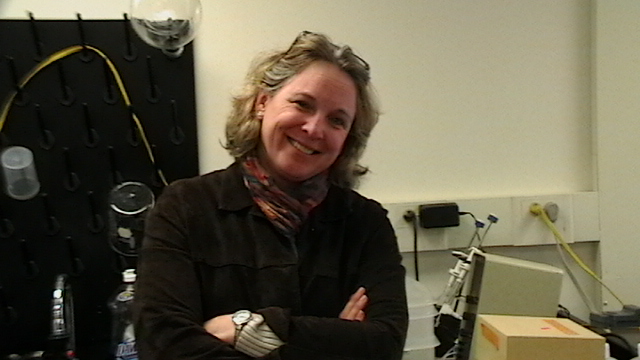At a very young age, Lillie Cohn developed a passion for animals – dead animals.
While her friends played on swing sets or chased soccer balls across the playground, Lillie scoured her surroundings for creatures to dissect, and the bigger the specimen the better.
This week on You’re the Expert, researcher Lillie Cohn described how her early passion for dead animals biology led her to immunotherapy, a field that doesn’t involve much dissection but does involve a whole lot of blood.
At its most basic level, immunotherapy is using what we already know about the immune system to help our bodies fight off infectious diseases. Some diseases, like the flu, can be fought using vaccines. Other diseases, like cancer or malaria, are trickier to combat because in these cases the immune system doesn’t always recognize which cells are friendly and which cells are causing problems.
As a graduate fellow in the Nussenzweig Laboratory for Molecular Immunology at Rockefeller University, Lillie’s job is to train immune cells – in her case, dendritic cells – to recognize and kill problem-causing cells before they do harm. In other words, immunotherapy is basically molecular counterterrorism, and she’s Carrie Mathison in a lab coat.
Lillie’s got immunotherapy in her blood (literally), which may explain the childhood fascination with decaying rodents and small birds. Lillie’s grandfather, Zanvil A. Cohn, was a professor at Rockefeller University when he and Dr. Ralph M. Steinman discovered a new type of cell – the dendritic cell – in 1970, a discovery that would earn Steinman the Nobel Prize in Medicine 18 years after Cohn’s death and three days after his own. Lillie’s interest in the subject was fostered while working in the labs of these two scientific giants.
-Lydia Dallett, Production Associate
To hear more about bloodletting and why immunotherapists never wear their lab coats to parties, listen to the full You’re the Expert segment with immunology researcher Lillie Cohn here.
For a much more thorough and probably more accurate description of the work Lillie’s lab is conducting on dendritic cell biology as it pertains to diseases and vaccines, check out Rockefeller University’s Laboratory of Cellular Physiology and Immunology’s current research page here.
Also, in case you enjoy listening to British women talk about science, check out this awesome animated video on how immunotherapy is being used to fight cancer:
Dendritic cell-based immunotherapy is just one of several ways researchers are manipulating the immune system to fight off diseases. Another popular area of study is allergy immunotherapy. Unlike most allergy treatments, such as antihistamines like Benadryl or Allegra, immunotherapy treats both the symptoms of an allergy and its cause by retraining the immune system to stop reacting violently when it comes into contact with peanut butter or pollen. For a riveting story on one researcher’s fight to get oral immunotherapy studies funded – and the families with at-risk children counting on her – read Melanie Thernstrom’s New York Times Magazine cover story, “The Allergy Buster.”


